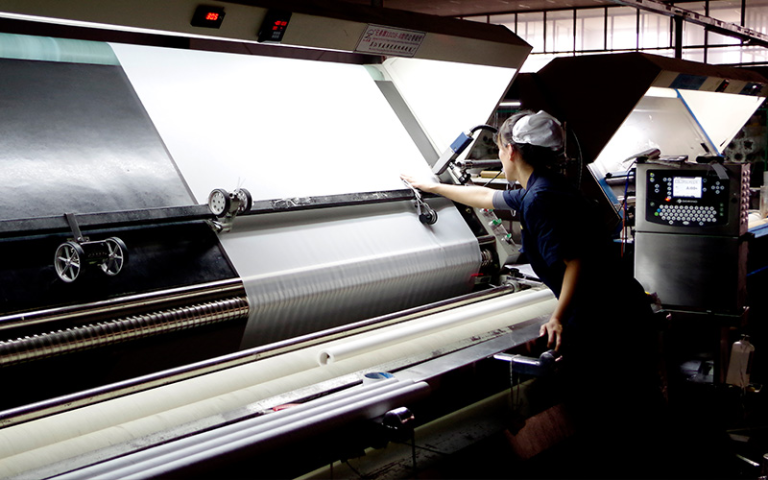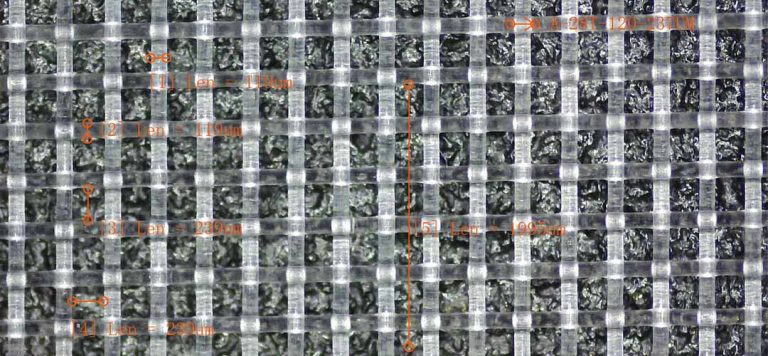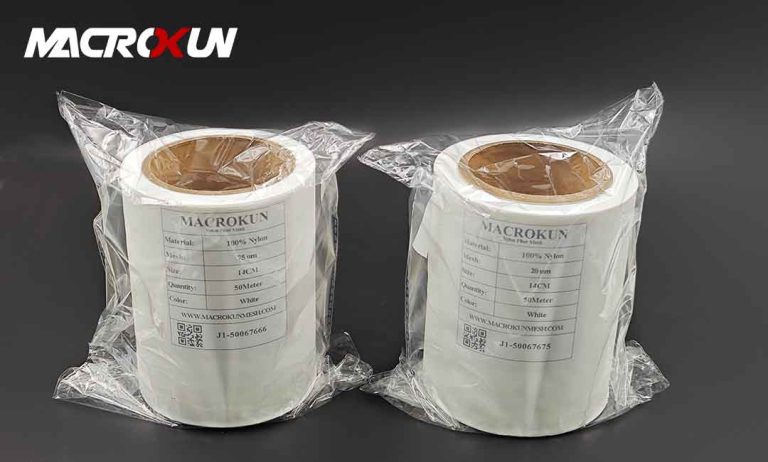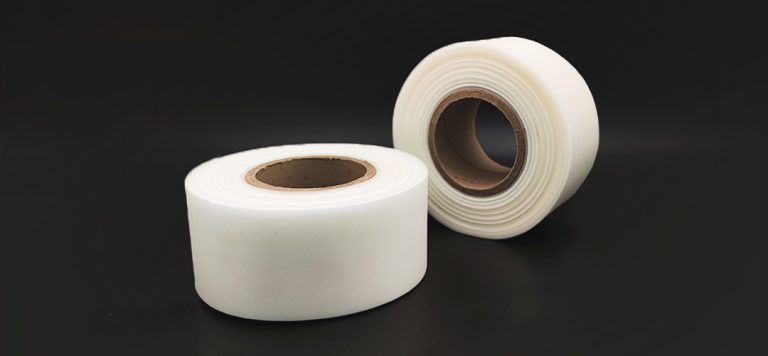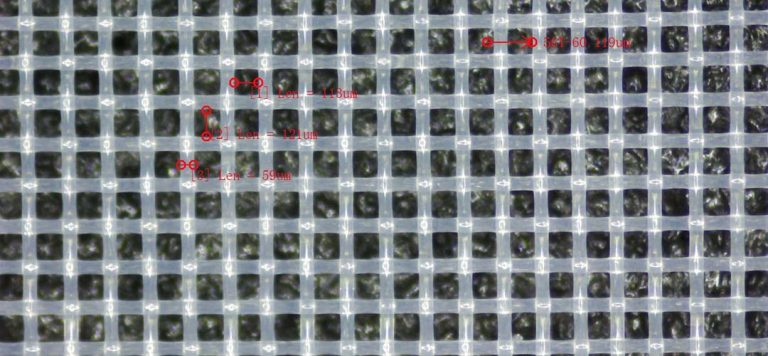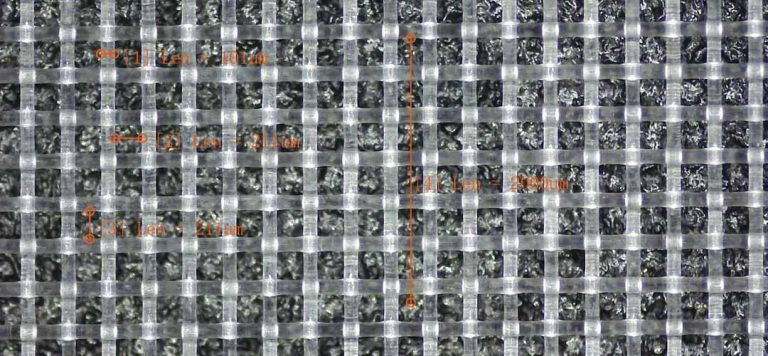Table of Contents
Benefits of Using nylon mesh for filtration
Nylon mesh is a versatile material that is commonly used in filtration systems due to its durability, flexibility, and efficiency. In this article, we will explore the benefits of using nylon mesh for filtration and how it can improve the performance of filtration systems in various industries.

One of the key benefits of using nylon mesh for filtration is its high tensile strength, which allows it to withstand high pressures and temperatures without losing its shape or integrity. This makes nylon mesh an ideal material for applications that require a durable and long-lasting filtration solution, such as in the automotive, aerospace, and chemical industries.
Additionally, nylon mesh is resistant to chemicals, oils, and solvents, making it suitable for filtering a wide range of substances without degrading or becoming contaminated. This resistance to chemicals also makes nylon mesh easy to clean and maintain, ensuring that it can be used repeatedly without compromising its filtration efficiency.
Another advantage of using nylon mesh for filtration is its flexibility and adaptability. Nylon mesh can be easily cut, shaped, and molded to fit different filtration systems and applications, making it a versatile material that can be customized to meet specific filtration requirements. This flexibility allows for the creation of efficient filtration systems that can effectively remove impurities and contaminants from liquids and gases.
Furthermore, nylon mesh is available in a variety of pore sizes, ranging from fine to coarse, which allows for precise control over the filtration process. This versatility in pore size enables nylon mesh to effectively capture particles of different sizes, ensuring that only clean and purified substances pass through the filtration system. This level of control over the filtration process results in improved efficiency and performance, making nylon mesh an essential component in filtration systems.
In addition to its durability, chemical resistance, flexibility, and precise filtration capabilities, nylon mesh is also cost-effective compared to other filtration materials. Nylon mesh is a relatively inexpensive material that offers high performance and efficiency, making it a cost-effective solution for industries that require reliable filtration systems without breaking the bank.
Overall, the benefits of using nylon mesh for filtration are numerous and significant. From its high tensile strength and chemical resistance to its flexibility and cost-effectiveness, nylon mesh is a superior material that can enhance the performance of filtration systems in various industries. By choosing nylon mesh for filtration, businesses can improve the quality of their products, reduce maintenance costs, and increase overall efficiency in their operations.
In conclusion, nylon mesh is a valuable material that offers numerous benefits for filtration systems. Its durability, chemical resistance, flexibility, precise filtration capabilities, and cost-effectiveness make it an ideal choice for industries that require efficient and reliable filtration solutions. By incorporating nylon mesh into their filtration systems, businesses can achieve superior performance, improved product quality, and cost savings in the long run.
How to Choose the Right Nylon Mesh for Your Filtration System
Nylon mesh is a versatile material that is commonly used in filtration systems to separate solids from liquids or gases. It is known for its durability, flexibility, and resistance to chemicals, making it an ideal choice for a wide range of applications. When choosing the right nylon mesh for your filtration system, there are several factors to consider to ensure efficient and effective filtration.
One of the most important factors to consider when selecting nylon mesh for your filtration system is the mesh size. The mesh size refers to the number of openings per inch in the mesh material. A smaller mesh size will result in finer filtration, while a larger mesh size will allow for larger particles to pass through. It is important to choose a mesh size that is appropriate for the size of the particles you are trying to filter out. If the mesh size is too small, it may clog easily and reduce the efficiency of the filtration system. On the other hand, if the mesh size is too large, it may not effectively filter out the desired particles.
Another important factor to consider when choosing nylon mesh for your filtration system is the mesh weave. The weave of the mesh refers to the pattern in which the strands of nylon are intertwined. There are several different types of mesh weaves, including plain weave, twill weave, and Dutch weave. Each type of weave has its own unique characteristics and is suitable for different types of filtration applications. For example, a plain weave mesh is ideal for general filtration applications, while a Dutch weave mesh is better suited for fine filtration of liquids or gases.
In addition to mesh size and weave, it is also important to consider the material of the nylon mesh. Nylon mesh is available in a variety of materials, including nylon 6, nylon 6/6, and nylon 6/12. Each type of nylon material has its own unique properties, such as chemical resistance, temperature resistance, and tensile strength. It is important to choose a nylon mesh material that is compatible with the specific requirements of your filtration system.

When selecting nylon mesh for your filtration system, it is also important to consider the operating conditions of the system. Factors such as temperature, pressure, and chemical exposure can impact the performance and longevity of the nylon mesh. It is important to choose a nylon mesh that is able to withstand the specific operating conditions of your filtration system to ensure optimal performance.
In conclusion, choosing the right nylon mesh for your filtration system is essential to ensure efficient and effective filtration. By considering factors such as mesh size, weave, material, and operating conditions, you can select a nylon mesh that is best suited for your specific filtration requirements. With the right nylon mesh in place, you can achieve reliable and consistent filtration results in your system.
Maintenance Tips for Nylon Mesh Filters
Nylon mesh filters are commonly used in various industries for their efficient filtration capabilities. These filters are known for their durability, flexibility, and resistance to chemicals, making them ideal for a wide range of applications. However, like any filtration system, nylon mesh filters require regular maintenance to ensure optimal performance and longevity.
One of the most important maintenance tips for nylon mesh filters is regular cleaning. Over time, debris, dirt, and other contaminants can accumulate on the mesh, reducing its effectiveness. To clean a nylon mesh filter, simply remove it from the filtration system and rinse it thoroughly with water. For more stubborn debris, a mild detergent or cleaning solution can be used. It is important to avoid using harsh chemicals or abrasive materials, as these can damage the mesh and reduce its filtration efficiency.
In addition to regular cleaning, it is also important to inspect nylon mesh filters regularly for any signs of damage or wear. Tears, holes, or fraying in the mesh can compromise its ability to filter effectively. If any damage is found, the filter should be replaced immediately to prevent contaminants from passing through the filtration system.
Another important maintenance tip for nylon mesh filters is proper storage. When not in use, filters should be stored in a clean, dry environment to prevent mold, mildew, or other contaminants from growing on the mesh. It is also important to store filters away from direct sunlight, as UV rays can degrade the nylon material over time.
In addition to regular cleaning, inspection, and storage, it is also important to follow the manufacturer’s guidelines for maintenance and replacement of nylon mesh filters. Some filters may have specific cleaning instructions or recommended replacement intervals to ensure optimal performance. By following these guidelines, users can prolong the life of their filters and maintain efficient filtration systems.
Overall, proper maintenance is essential for ensuring the effectiveness and longevity of nylon mesh filters. By regularly cleaning, inspecting, and storing filters, users can prevent damage, maintain filtration efficiency, and extend the life of their filtration systems. Following manufacturer guidelines for maintenance and replacement can also help to maximize the performance of nylon mesh filters and ensure clean, filtered water or air in various applications.
In conclusion, nylon mesh filters are a versatile and efficient filtration solution for a wide range of industries. By following these maintenance tips, users can ensure that their filters perform optimally and last for years to come. Regular cleaning, inspection, and storage are key to maintaining the effectiveness of nylon mesh filters and ensuring clean, filtered water or air in any application. By taking care of their filters, users can enjoy the benefits of efficient filtration systems and reliable performance.


